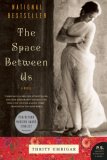Book Club Discussion Questions
In a book club? Subscribe to our Book Club Newsletter!
For supplemental discussion material see our Beyond the Book article, Parsis and our BookBrowse Review of The Space Between Us.
Please be aware that this discussion guide will contain spoilers!
Introduction
Poignant and compelling, evocative and unforgettable,
The Space Between Us is an intimate portrait of a distant yet familiar world. Set in modern-day India and witnessed through two compelling and achingly real women, the novel shows how the lives of the rich and the poor are intrinsically connected yet vastly removed from each other, and vividly captures how the bonds of womanhood are pitted against the divisions of class and culture.
Questions for Discussion
- At the end of The Space Between Us, Sera has a tough choice to make. Can you envision a scenario where she could've made a different choice? What would it have taken for her to have made a different choice? And what would be the consequences of that choice?
- The novel deals with a relationship that, despite all the good will in the world, is ultimately based on the exploitation of one human being by another. Has this novel caused you to look at any situations in your own life where you may be benefiting from the labor or poverty of another?
- Remarking on the fact that Bhima is not allowed to sit on the furniture in Sera Dubash's home, or drink from the same glass, it could be said that the novel is about a kind of "Indian Apartheid." Do you think that's putting it too strongly? If not, can you identify any parallels in contemporary America?
- The novel tracks the lives of two women. Trace some of the ways in which their lives resemble each other's. What are the points of departure?
- Neither Sera nor Bhima end up with happy, successful marriages. Why? Trace the factors that cause each marriage to fail. And for all its failings, which woman has the better marriage?
- Sera's mother-in-law, Banu, makes life miserable for the young Sera. Is Banu the kind of mother-in-law that many American women can identify with? Examine the ways in which she is or isn't the typical in-law.
- The Afghani balloonwalla is a minor but pivotal character in the novel. What is his role? What does he symbolize or represent?
- The novel is told from the points of view of the two women, Bhima and Sera. Should it have included more points of view? For instance, should Viraf have had his own "voice"?
- How do you read the ending of the book? Is it a hopeful ending? Do you think the ending is justified, given what awaits Bhima the next day?
- What is your opinion about Sera, especially given the choice she makes in the end. Is she a sympathetic character? Or is she part of the problem?
- This is a novel about the intersection of class and gender. Can you think of ways in which gender bonds the two women and ways in which class divides them?
-
Is Gopal justified in being furious at Bhima for having signed the contract that the accountant puts before her during the cab ride to the hospital? Would the family's fate have been different if she hadn't signed that paper?
- Two characters who help Bhima -- Hyder, the boy in the hospital and the Afghani balloon seller, both happen to be Muslims. Why? What does the novel say about the issues of religious and communal divisions in India?
- What does this novel say about the importance of education? Think of some examples where the lack of education hurts a character and conversely, instances of where having an education benefits someone.
- In some ways, the city of Bombay is a character in the novel. What are your impressions of Bombay after having read this novel? Does the author portray the city with affection or disdain?
- What societal changes and/or personal choices would need to be different in order for us to envision the possibility of someone like Bhima having a better life?
- The author has said that although the plot of The Space Between Us is a work of fiction, the character of Bhima is based on a woman who used to work in her home when the writer was a teenager. Is there any person in your own life who has inspired you enough to want to write a book about them? What is it about that person that had a deep impact on you?
Unless otherwise stated, this discussion guide is reprinted with the permission of Harper Perennial.
Any page references refer to a USA edition of the book, usually the trade paperback version, and may vary in other editions.
